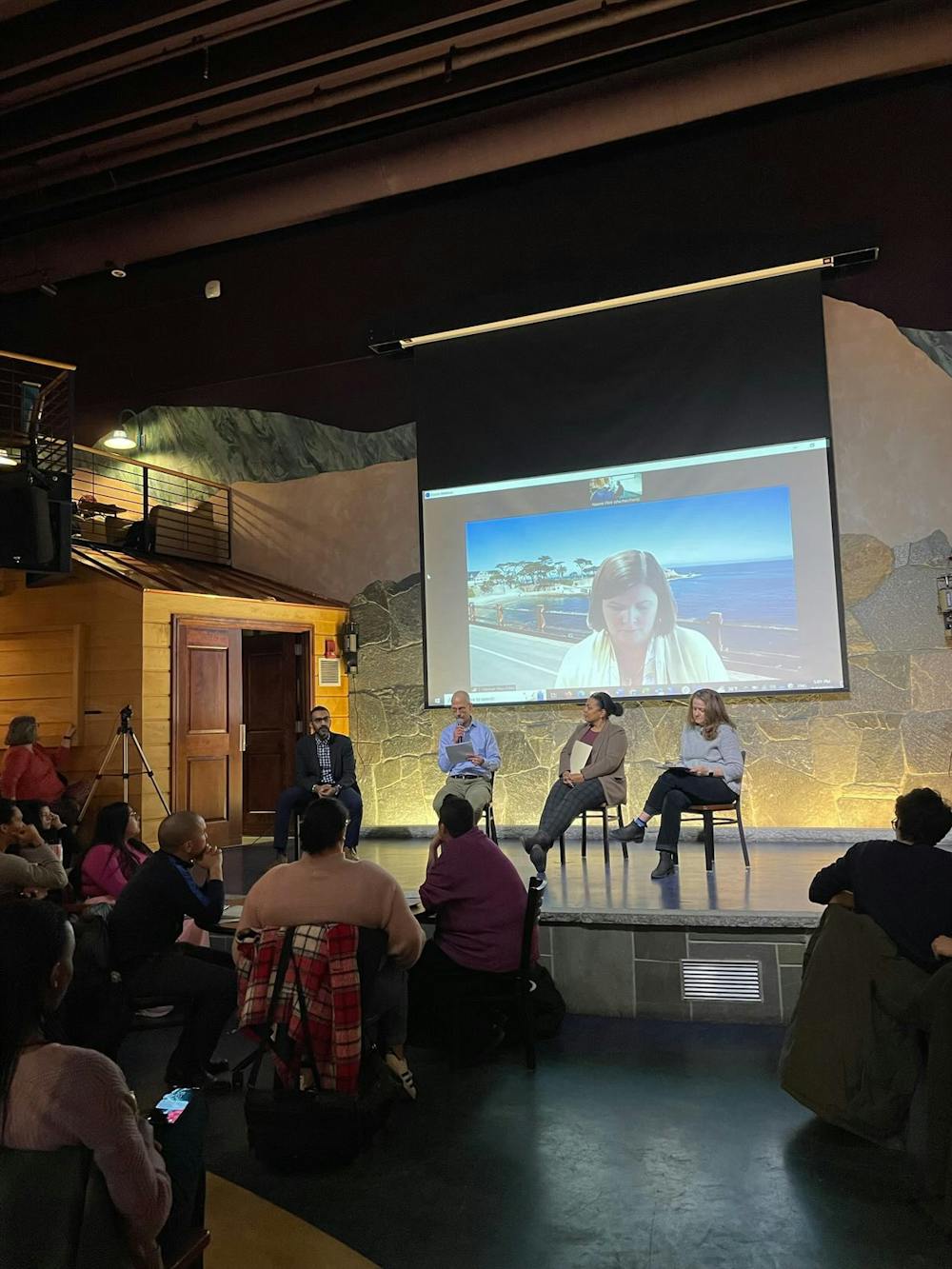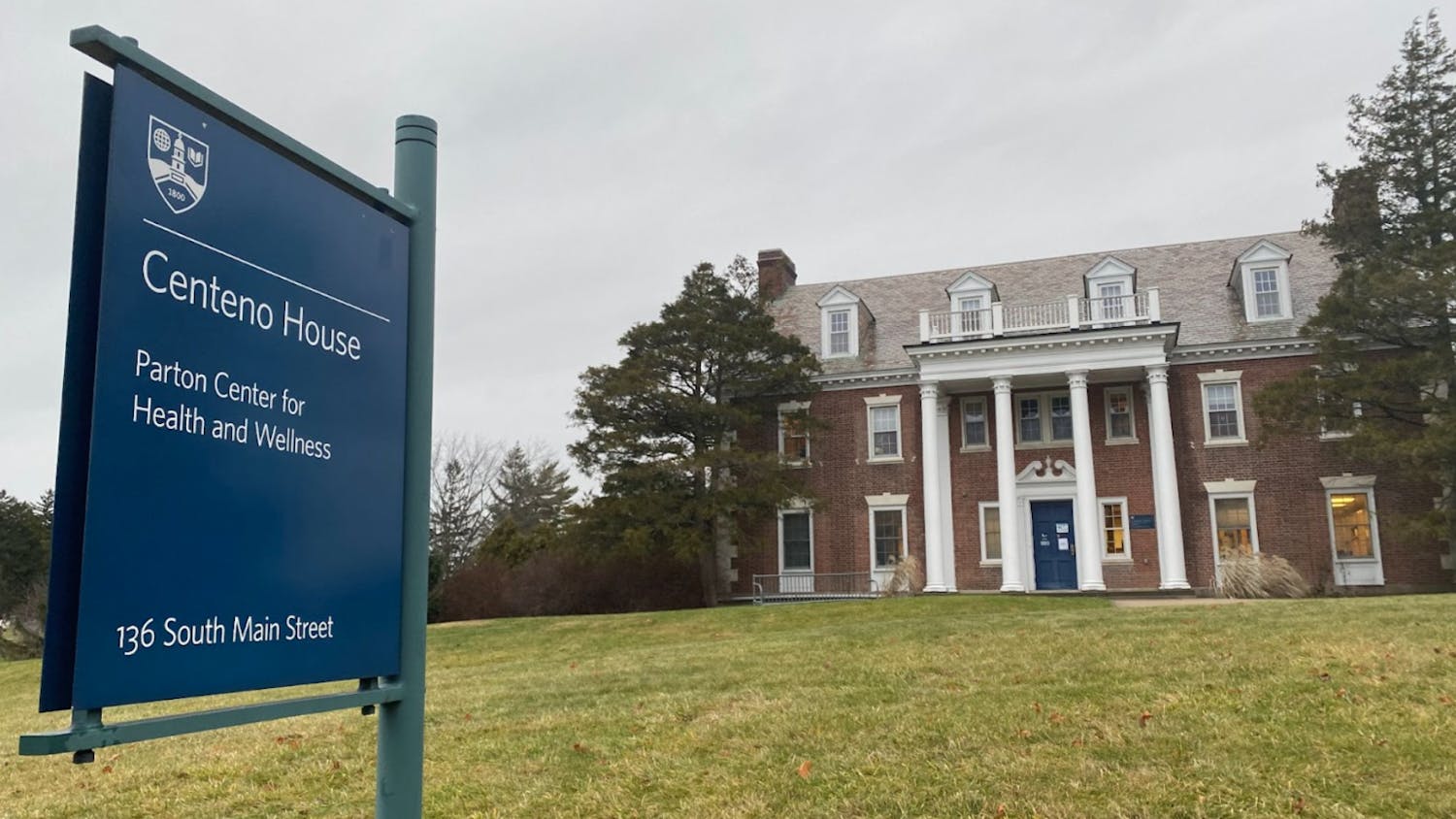The Student Government Association’s (SGA) Diversity, Equity and Inclusion Committee (DEI) along with the Middlebury Community Council and JusTalks hosted a community dialogue to discuss the question, “What would ending affirmative action mean for Middlebury?”
Before the discussion began, commentary and background information on affirmative action was provided by Middlebury scholars, educators and community leaders including Political Science Professor Bert Johnson, Education Studies Professor Tara Affolter, Vice President of Equity and Inclusion Khuram Hussain, Dean of Admissions Nicole Curvin and Middlebury General Counsel Hannah Ross.
The speakers explained that affirmative action as defined by the Supreme Court is a race-conscious policy aimed at addressing barriers in the entry to higher education for underrepresented students by considering race as a factor in admissions. Currently, there are nine states that have banned affirmative action.
“The Court has ruled in at least three major cases and several minor ones over the course of 50 years that race may be used as one factor as part of a holistic review with the goal of achieving a diverse student body,” Johnson said. “There are two cases right now that are contesting that conclusion made in University of California Regents v. Bakke back in 1978, one against the University of North Carolina (UNC) and one against Harvard. Challengers argue that race as one factor unjustly disadvantages other racial groups, in particular, the Harvard case cites that Asian Americans suffer as a result of affirmative action programs designed to benefit Black and Hispanic students.”
Middlebury has become involved in these two pending cases. Middlebury College, along with 32 other liberal arts colleges, signed an amicus curiae brief in support of both Harvard and UNC in the legality of race as one of many factors. In an announcement back in August 2022, representatives of Middlebury wrote, “The brief aligns with Middlebury’s deep commitment to creating a diverse, welcoming community with full and equitable participation for all individuals and groups. Removing the ability to consider race as one factor among many in the admissions process threatens this effort.”
The Supreme Court is not set to make a decision until June 2023, which has allowed time for discussion of its possible effects to arise.
“There is a majority of six justices that are described as fairly conservative, and in the October hearings, they voiced some skepticism about the necessity of race-conscious admissions,” Ross said. “Because of this, as a college we are all working very hard to prepare for the different outcomes that might result from this case and will continue sharing information as it develops.”
The discussion also provided commentary on the benefits of affirmative action to Middlebury students themselves. Affolter quoted evidence from an amicus brief submitted by the American Educational Research Association to the Supreme Court in support of affirmative action at Harvard University.
“Students with greater exposure to racial diversity are likely to score higher academically, have higher self confidence, greater social agency and overall greater dispositions to critical thinking,” Affolter said. “Student body diversity promotes cross racial understanding and reduces prejudice, overall leading to more positive interethnic attitudes by the end of college.”
Many student participants agreed with her perspective and added their own thoughts about how affirmative action would benefit their education.
“Exposure to greater campus diversity will allow for higher civic engagement after graduating college, leading to an effective democracy in which leaders who believe in diversity and liberal thinking are chosen,” said one student who raised their hand to contribute.
Curvin also spoke from her perspective as the leader of the team who is in charge of implementing all of these components that influence the admission of future Middlebury students.
“Middlebury has been bringing in more diverse classes over the past several years, and we are committed to move in that direction, understanding that there will be steps forwards and steps backwards along the way,” Curvin said.
After commentary from the guest speakers, students and faculty were split into groups to have their own discussions about the same affirmative action question, with prompts created by the JusTalks team. Discussion topics included overall opinions about the commentary provided by the speakers, what they believed Middlebury’s responsibility is in addressing issues of diversity following the Supreme Court decision, and overall what the college should do next as a community.
Following these smaller discussions, participants from each group were invited to discuss what was brought up in their own groups with the rest of the room.
One student shared how affirmative action helps gets students of color in the door at colleges and universities, but what institutions such as Middlebury need to work on is making sure these students now have the same opportunities and resources as white students — a statement that was followed by a round of applause afterwards.
The energy of the conversation in the room leaned more towards this perspective in support of affirmative action, but speakers were also taking into consideration how it impacts all students.
“What we wanted to accomplish out of this event was to bring the community together to be better informed and engaged at this critical moment where higher education policies may shift dramatically around issues we care deeply about.” Hussain said.

Mandy Berghela '26 (she/her) is a Senior Local Editor.
Mandy previously served as a local editor and staff writer. She is a Political Science major with a History minor. Mandy serves as co-president for Southeast Asian Society (SEAS), a member on the Judicial Board, and an intern for the Conflict Transformation Collaborative. In her free time, she enjoys cycling and reading fantasy novels.




